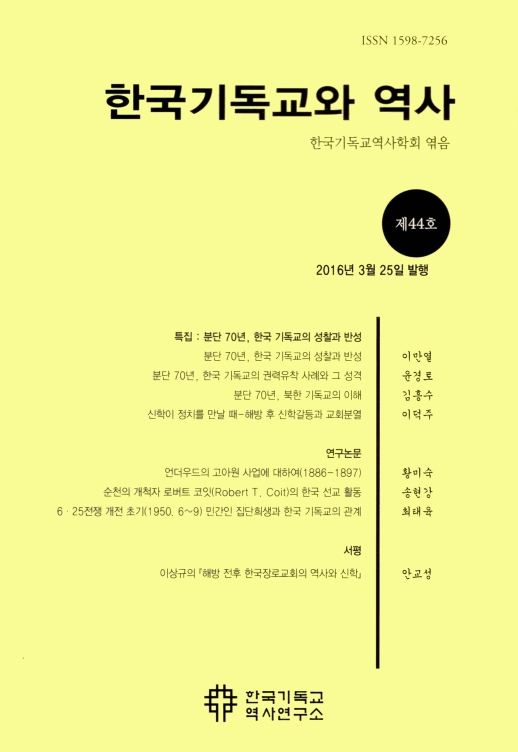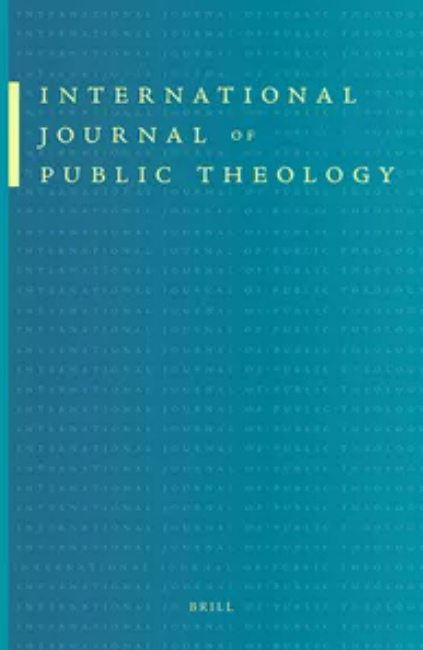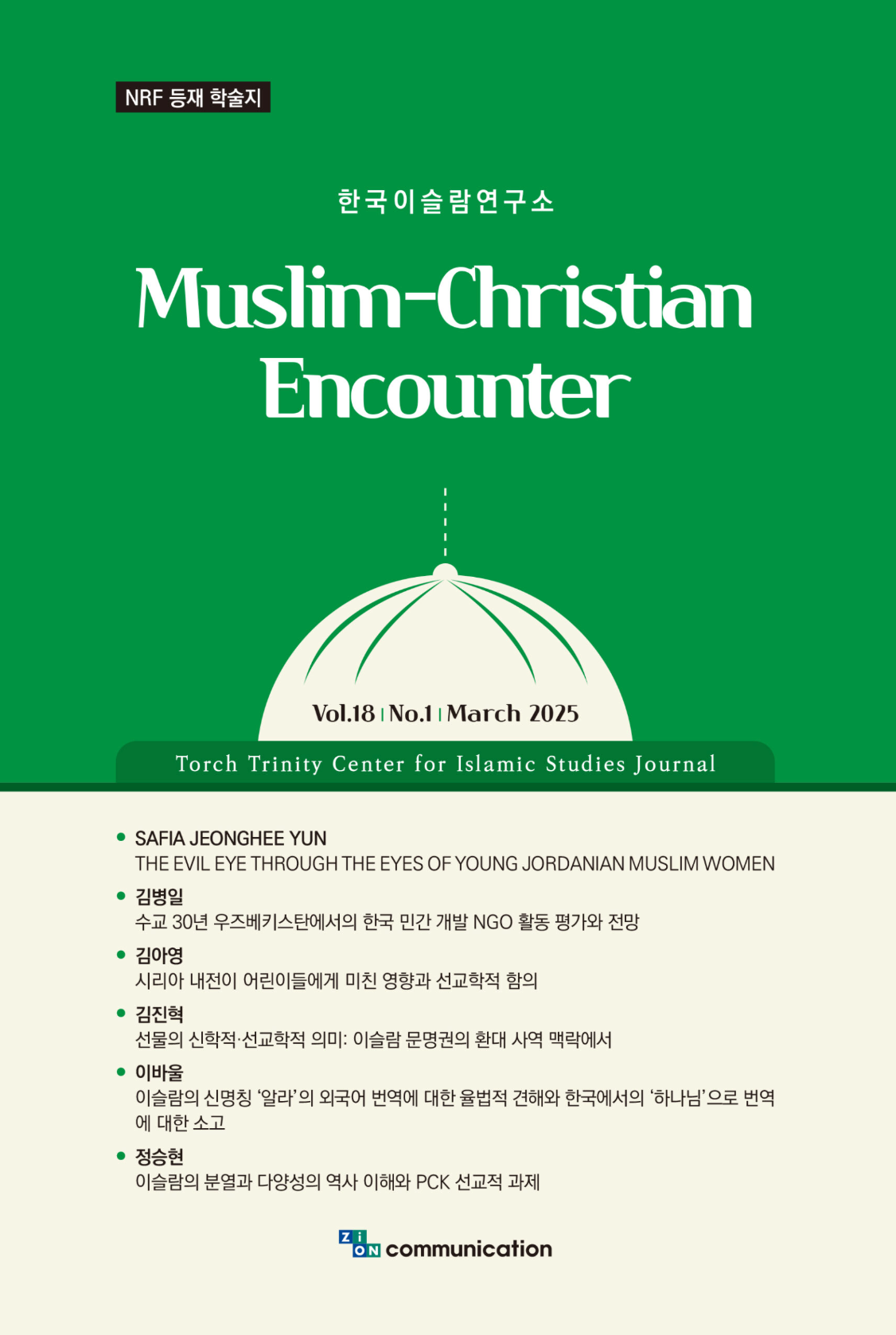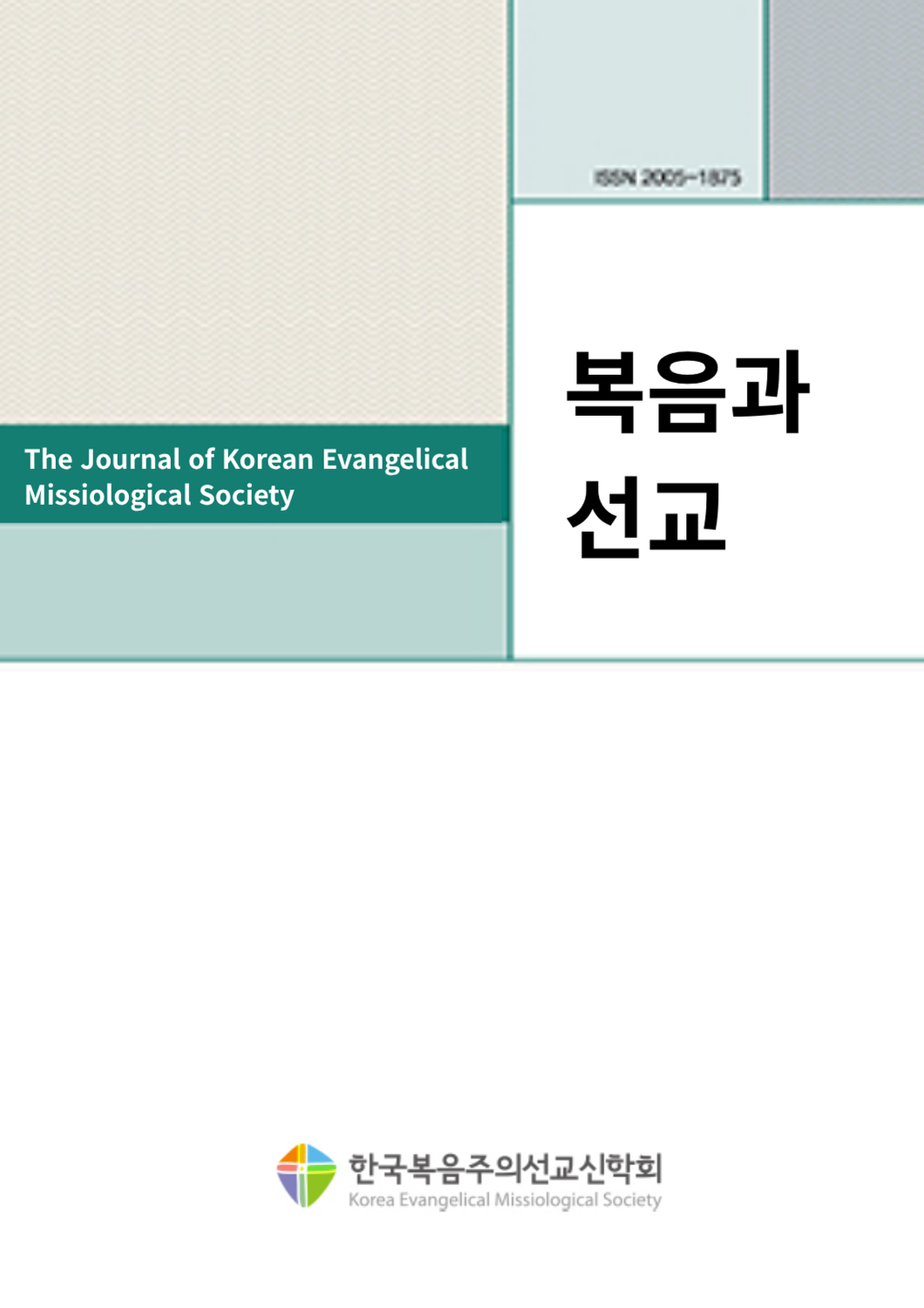본 연구는 광복 및 분단 70년을 맞이하여 한국 기독교가 걸어온 길을 비판적으로 성찰한다. 해방 직후 민족에게 주어진 식민잔재 청산, 분단 극복, 민주국가 건설이라는 시대적 과제에 교회가 어떻게 응답했는지 평가하고, 이후 양적 성장 이면에 나타난 문제들의 구조적 원인을 진단하고자 한다. 본고는 교회가 신사참배 회개 실패로 친일청산의 예언자적 목소리를 내지 못했으며, 해방 정국에서 민족 화해보다 이념 대결에 편승했음을 지적한다. 또한 1960년대 이후 폭발적인 성장은 기복주의적 복 사상과 성속(聖俗)을 구분하는 이분법적 삶의 태도를 만연시켜, 사회에 기독교적 가치를 실현하는 데 실패하는 결과를 낳았다고 분석한다. 이러한 문제들의 근원에는 한국의 역사적·사회적 상황 속에서 스스로의 신학을 정립하지 못한 ‘자기 신학화의 부재’가 놓여 있음을 핵심 원인으로 제시한다.결론적으로, 분단 70년의 현실 속에서 한국 교회가 회복해야 할 사명은 이념적 증오를 넘어, 동족상잔의 비극을 푸는 ‘용서와 화해’의 공동체가 되어 평화와 통일의 길을 여는 것임을 강조한다.
This study offers a critical reflection on the trajectory of Korean Christianity on the 70th anniversary of Korea's liberation and division. It evaluates how the church responded to the historical tasks presented to the nation immediately after liberation in 1945—namely, the liquidation of colonial remnants, overcoming national division, and building a democratic state—and diagnoses the structural causes of the problems that arose alongside its later quantitative growth. The paper points out that the church failed to serve as a prophetic voice for decolonization due to its own failure to properly repent for its complicity in shrine worship, and that it sided with ideological confrontation rather than national reconciliation during the turbulent liberation period. Furthermore, it analyzes how the explosive growth from the 1960s onward led to the prevalence of a shamanistic prosperity gospel and a dualistic sacred-secular worldview, resulting in a failure to realize Christian values in society. It posits that at the root of these issues lies a critical "absence of self-theologizing"—the failure to establish its own theology rooted in Korea's unique historical and social context. In conclusion, the study emphasizes that the mission for the Korean church to recover, amidst the reality of 70 years of division, is to move beyond ideological hatred and become a community of "forgiveness and reconciliation," thereby healing the tragedy of fratricide and paving the way for peace and unification







